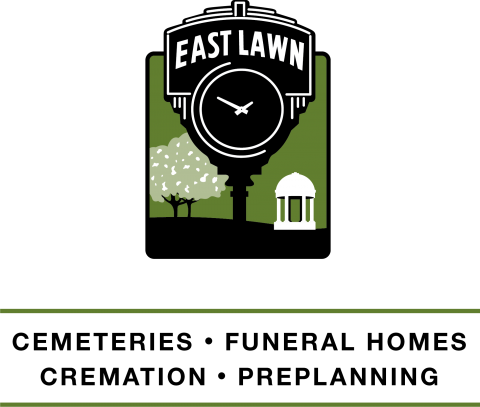Subscribe to our Newsletter!
 East Sacramento Preservation
East Sacramento Preservation- Community Meeting Announcement—Major East Sacramento Development 05/17/2025
- Tree Planting Season Wrap-Up at McKinley Park 04/13/2025
- 🌳 Volunteers Needed for McKinley Park Tree Planting! (March 29)🌳 02/19/2025
- East Lawn Memorial Park Guided Historic Walking Tours 02/08/2025
- 20 Is Plenty Lawn Sign Available 02/04/2025
Tag Archives: planning commission
East Sacramento Film—McKinley Village
East Sacramento and Midtown residents come together to reject the McKinley Village project as proposed. It’s not smart growth, it will hurt our schools, clog our streets with traffic, lacks retail and has no public transportation. East Sacramento Preservation opposes the project as proposed.
Posted in Uncategorized
Tagged Angelides, Cal Trans, calming traffic, city of sacramento, East Sacramento, East Sacramento Neighborhood Associations, East Sacramento Preservation, McKinley Village, meagan garcia norris, mercy hospital construction, planning commission, rail, rail way, traffic calming, Traffic Study, train
Comments Off on East Sacramento Film—McKinley Village
McKinley Village Sacramento: Questions with Truthful Answers
 What will McKinley Village be like?
What will McKinley Village be like?
If it is built, it will be a car-centric replica of suburbia squeezed between a railroad and a freeway. It will consist of large houses on streets with virtually no retail, no transit or shuttle service to bus lines, and will daily funnel thousands of cars into East Sacramento.
What is its size and what kind of homes will there be?
If built, it will occupy 49 acres with 328 single-family detached houses. The plan ranges from 1,300 square feet houses with 3 bedrooms and 2.5 baths to 3,100 square feet houses with 5 bedrooms and 4 baths. Plainly, the plans create a heavily populated project.
What will be the traffic impact on East Sacramento?
McKinley Village drivers will exit through a tunnel blasted through our secondary levee at C Street between 40th and Tivoli Way. This car influx will transform quiet East Sacramento streets into traffic clotted thoroughfares. It will imperil the safety of pedestrians, greatly increase our auto exhaust pollution, decrease home values and erode the neighborhood fabric.
Is McKinley Village consistent with City plans?
No. The developer argues that it is, mostly because it “adheres to the region’s blueprint to reduce vehicle miles traveled and improve air quality.” Instead, and ironically, it worsens air quality, both in the proposed site itself and in East Sacramento, where residents exposed to McKinley Village car exhaust and other traffic hazards will experience collateral damage.
How does McKinley Village worsen air quality?
Proposed residents will live in a bowl-like location between the freeway and railroad tracks. Combined diesel and auto exhaust will significantly contaminate the air they breathe, so much so that Physicians for Social Responsibility have issued a letter expressing grave concerns about the proposed project’s air quality. To mitigate some of the hazard the developer plans to install a HEPA (High-Efficiency Particulate Absorption) filter in every house. But HEPA filters will not improve air outdoors, nor will they aid East Sacramentans who will bear the brunt of McKinley Village traffic exhaust.
What are the project’s environmental impacts?
As previously mentioned, the project will have a negative impact on air quality, both in the project itself and in nearby neighborhoods afflicted with its traffic. The developer refers to the project’s Draft Environment Impact Report which claims “less than significant environmental impacts,” but the report bases its assessment on defective models. For example, the traffic study uses an outdated, faulty, driver-centric instrument that does not consider traffic impact on residents, but evaluates only how often drivers are forced to slow down in their progress. This “traffic study” does not “study” or even consider traffic impacts on nearby neighborhoods, residents, or pedestrians. Safety is not a concern. Health is not a concern. The sole concern is driver convenience. It is absurd to predicate an assessment on such a narrow focus. Yet the developer touts this as validation.
If McKinley Village is not built, what could be built on the site?
The developer frequently asks this question in an unsubtle effort to suggest that his project is the best we will get. But there are numerous other possibilities, among them a nature reserve, a solar farm, a community Soil Born type farm with an educational component, a park, a light industrial project. Even a lower density, better planned development, similar to the plan for homes on the Sutter Memorial site, would be preferred.
Why does the project propose to funnel East Sacramento traffic only on to C Street between 40th and Tivoli and not add a second access at Alhambra Boulevard?
The developer presently claims that technical and engineering problems prevent the Alhambra solution. But in several earlier meetings he declared openly that this solution was “not economically feasible.” That is, it would cut too heavily into his very substantial potential profit. The Alhambra option is real. In an editorial the Sacramento Bee declared it worth studying. Freeway access is not a pipe dream. The previous Centrage developer said he had in his hands plans for the off-ramp and a city permit. It would alleviate the ruinous traffic invasion of East Sacramento. It may cost the developer more, but that is the price paid for not destroying classic, fragile neighborhoods that add great value to the city. Responsible development would undertake the Alhambra exit.
What about flooding?
The developer falsely claimed that, “McKinley Village will have the same level of protection as East Sacramento, Midtown and Downtown.” But McKinley Village would actually be a flood rescue site, like River Park. The project would puncture two holes into our secondary levee, increasing flood threat to East Sacramento. The developer states that the Union Pacific Railroad embankment is “not a certified levee.” But, “certified” or not, that embankment has given Sacramento years of flood protection as a secondary levee. A levee system is only as strong as its weakest points: the floodgates (which must be operated manually). Adding the proposed two additional breaches (at Alhambra and 40th Street) will greatly degrade the system’s flood control performance.
How will the project affect local schools?
The developer says “there is capacity at local schools to accommodate students from McKinley Village.” But the fact is that students pouring in from McKinley Village will crowd Theodore Judah, the public school in direct line of impact, absorbing classroom space and forcing detrimental changes. Programs that use classroom space, like Science, Computer Lab, Library and Music, may be cut back or eliminated altogether. The space and facilities provided for Special Education students, a vulnerable population, will be at risk. The school would have to be expanded to absorb the McKinley Village influx, and without developer-provided special busses, 576 more car trips would clog East Sacramento streets. It should be noted that Theodore Judah will also be expected to accommodate the student population increase from the neighborhood-approved Stonebridge development at the Sutter Memorial site.
Who opposes McKinley Village as planned?
ECOS (the Environmental Council of Sacramento) has concerns about the current plan and its environmental impact, Physicians For Social Responsibility have issued a letter expressing “grave concern” about air contaminants in McKinley Village. More than 1000 East Sacramento residents have signed a petition opposing the project. Former City Councilman, Terry Kastanis, strongly opposes the project as do the following established groups: East Sacramento Preservation Neighborhood Association, Boulevard Park Neighborhood Association, I Love East Sac action group, Neighbors United for Smart Growth, Friends of the Riverbank, Friends of Sutter’s Landing, Friends of the Swainson’s Hawk, and Save the American River Association. Additionally, during the comment period for the Draft Environment Impact Report, the City of Sacramento received 100s of comments and questions, more than most projects ever receive at the City Planning Department. As it becomes more and more clear that the developer has no intention of altering his plan to help traffic congestion, air pollution or flood concerns, opposition to the McKinley Village project will continue to grow.
Are our elected representatives helping the neighborhoods?
The city council vote on the McKinley Village project will make clear which of our elected officials truly represent the citizens and support neighborhood services. We urge you to contact your representative to express your concerns about this project.
District 3–Steve Cohn, 915 I Street, Sacramento, 95814, SCohn@cityofsacramento.org (916) 808-7003
This Q&A is made possible by East Sacramento Preservation, Inc. East Sacramento Preservation is opposed to the project as proposed. We hope the developer will work with the neighborhood to create a better proposal. www.eastsacpreservation.org
Posted in Essays
Tagged Angelides, calming traffic, city of sacramento, East Sacramento, East Sacramento Neighborhood Associations, East Sacramento Preservation, McKinley Village, meagan garcia norris, planning commission, rail, rail way, rail yard, railyard, riverview capital investments, Sacramento, Smart Growth, Steve Cohn, tina thomas, traffic, traffic calming, Traffic Study, train
Comments Off on McKinley Village Sacramento: Questions with Truthful Answers
















 Subscribe In A Reader.
Subscribe In A Reader. Check Us Out On Facebook!
Check Us Out On Facebook! Check Us Out On Twitter!
Check Us Out On Twitter! Visit Nextdoor!
Visit Nextdoor!








